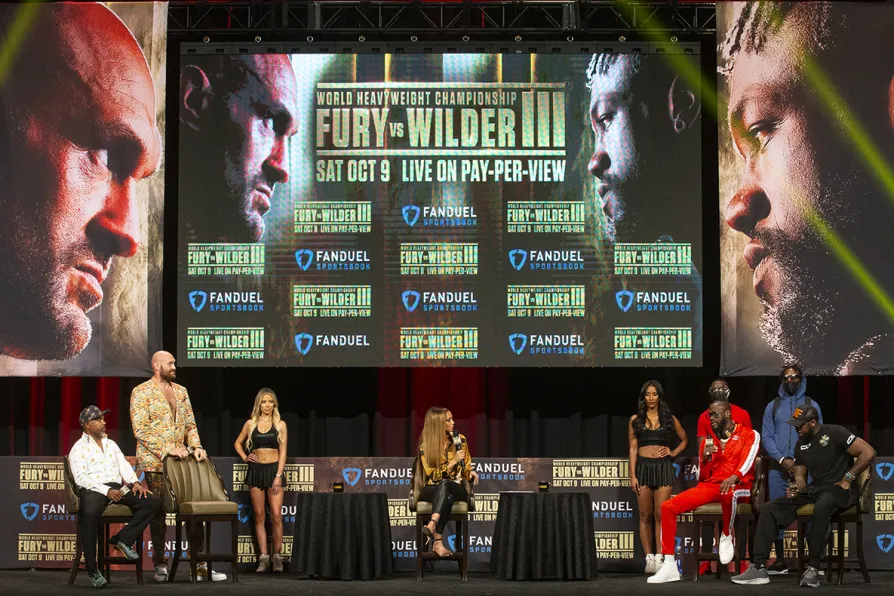Wilder's retribution or Fury's redemption?
The key factor in Saturday's fight, writes JOHN WIGHT, isn't what Deontay can do, but which version of Tyson shows up in Las Vegas

 Fury (left) and Wilder trade insults at a press event on Wednesday
Fury (left) and Wilder trade insults at a press event on Wednesday
HEAVYWEIGHT boxing has always been the most unpredictable of sports.
Just when you think there’s an ironclad and irreversible hierarchy in place, along comes a curveball in the shape of one fighter in one fight to change the landscape entirely.
Only six months ago, the buzz around an upcoming fight for undisputed between Anthony Joshua and Tyson Fury was at fever pitch.
Similar stories

JOHN WIGHT pays tribute to the late great George Foreman who defied the odds throughout his life and career to become a household name and legend of the sport













